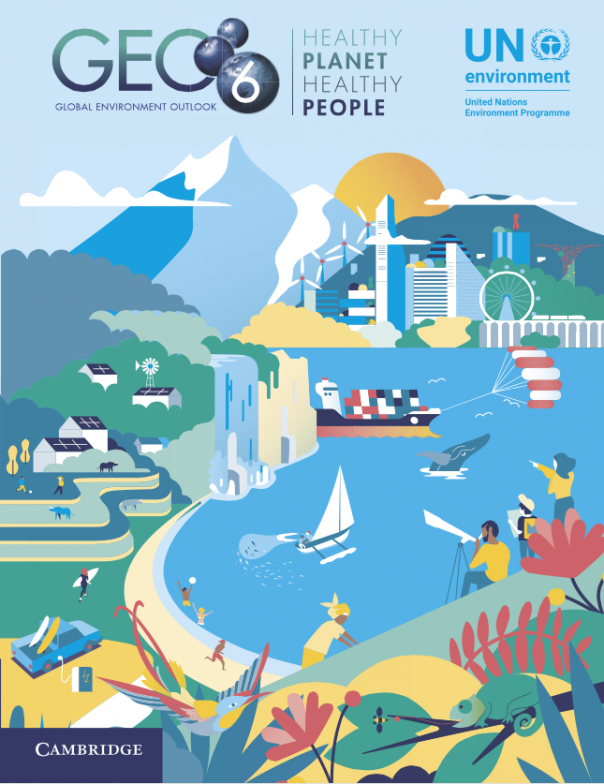
It says this would reduce the need to increase food production by 50% to feed the projected nine to ten billion people on the planet in 2050.
At present, 33% of global edible food is wasted, and 56% of waste happens in industrialised countries, the report states.
The sixth and latest report has been launched with a warning that, ‘damage to the planet is so dire that people’s health will be increasingly threatened unless urgent action is taken’.
The report, which was produced by 250 scientists and experts from more than 70 countries, says that either we drastically scale up environmental protections, or cities and regions in Asia, the Middle East and Africa could see millions of premature deaths by mid-century.
It also warns that pollutants in our freshwater systems will see anti-microbial resistance become a major cause of death by 2050 and endocrine disruptors impact male and female fertility, as well as child neurodevelopment.
But the report also highlights the fact that the world has the science, technology and finance it needs to move towards a more sustainable development pathway, although sufficient support is still missing from the public, business and political leaders who are clinging to outdated production and development models.
“The science is clear. The health and prosperity of humanity is directly tied with the state of our environment,” said Joyce Msuya, Acting Executive Director of UN Environment.
“This report is an outlook for humanity. We are at a crossroads. Do we continue on our current path, which will lead to a bleak future for humankind, or do we pivot to a more sustainable development pathway? That is the choice our political leaders must make, now.”
You can download a copy of the report, or a summary, using the following link: https://www.unenvironment.org/resources/global-environment-outlook-6